Dr. Babasaheb Ambedkar-2024
Dr. B. R. Ambedkar was popularly known as Babasaheb Ambedkar and everyone knows that he was one of the architects of the Indian Constitution
Aditya Pandey

Dr. B. R. Ambedkar was popularly known as Babasaheb Ambedkar and everyone knows that he was one of the architects of the Indian Constitution

As the year 2024 unfolds, it provides an opportunity for reflection on the enduring legacy of Dr. B.R. Ambedkar, the chief architect of the Indian Constitution, a social reformer, and an icon of the fight against caste discrimination. Dr. Babasaheb Ambedkar's teachings and principles continue to resonate, shaping the socio-political landscape of India. This article delves into the relevance and impact of Dr. Ambedkar's vision in the context of 2024.
As the year 2024 unfolds, the legacy of Dr. Babasaheb Ambedkar stands as a guiding force for a more just, equitable, and inclusive India. His teachings continue to shape the nation's conscience, challenging societal norms and inspiring a collective commitment to the principles of democracy, social justice, and human rights. In commemorating Dr. Ambedkar in 2024, we celebrate not only an individual but an enduring symbol of resilience, intellect, and the relentless pursuit of a fair and equal society.
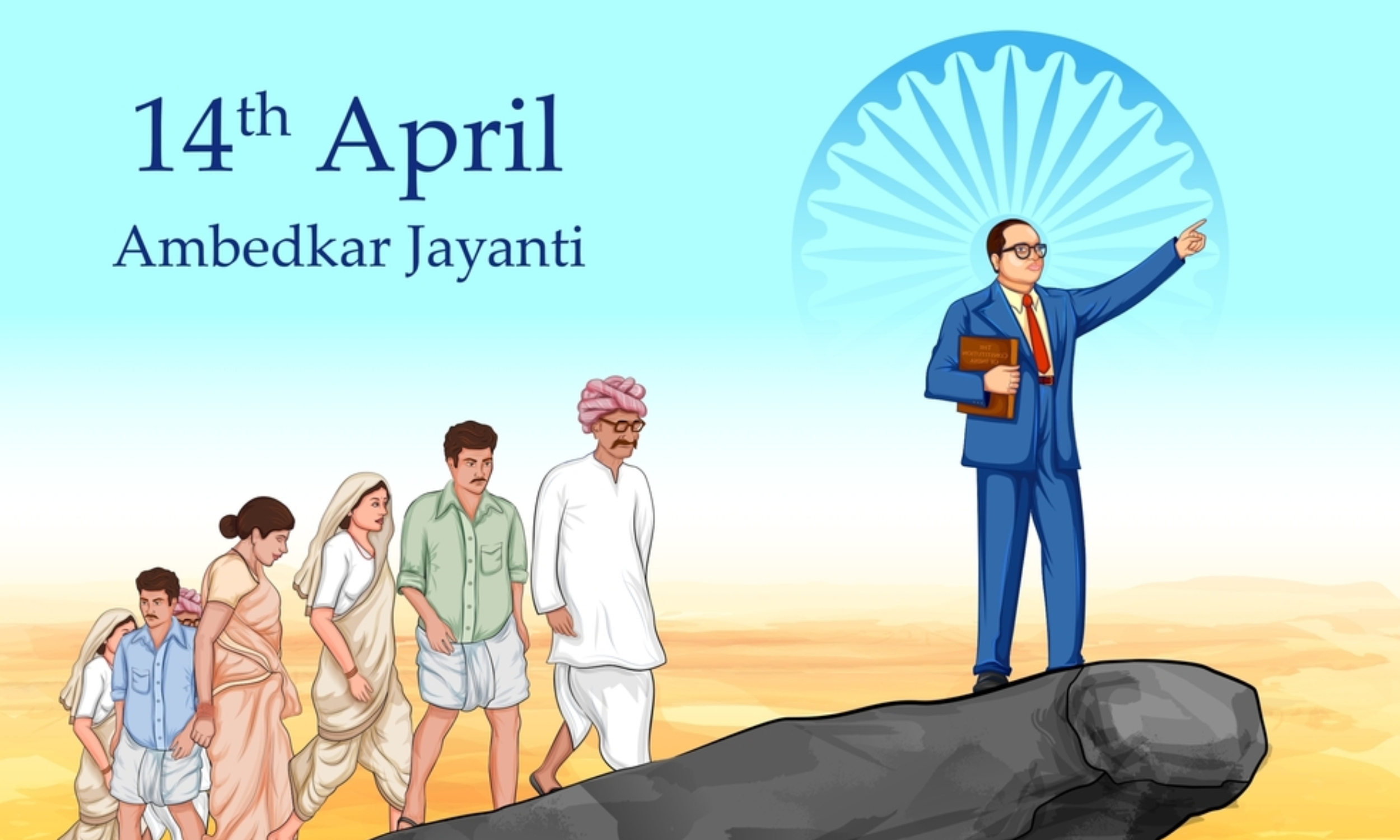
Dr. B.R. Ambedkar's constitutional vision
Dr. B.R. Ambedkar's constitutional vision is a foundational aspect of his enduring legacy. As the chief architect of the Indian Constitution, his vision has left an indelible mark on the democratic governance of India. Here are more details on Dr. Ambedkar's constitutional vision:
Inclusive Democracy: Dr. Ambedkar envisioned a democratic system that was not merely majoritarian but inclusive of all sections of society. His vision sought to ensure political representation and participation for marginalized communities, including Dalits, Adivasis, and other socially disadvantaged groups.
Fundamental Rights: Central to Dr. Ambedkar's constitutional vision was the emphasis on fundamental rights. He advocated for a set of rights that would be fundamental to the dignity and well-being of every individual, irrespective of caste, creed, or gender. These rights include the right to equality, freedom of expression, and protection from discrimination.
Social Justice: Dr. Ambedkar's commitment to social justice is a cornerstone of his constitutional vision. He aimed to dismantle the hierarchical caste system that perpetuated inequality and discrimination. Provisions such as reservations for Scheduled Castes (SCs) and Scheduled Tribes (STs) were incorporated to address historical injustices.
Eradication of Untouchability: One of the primary goals of Dr. Ambedkar's constitutional vision was the complete eradication of untouchability. He sought legal provisions that would criminalize practices related to untouchability and promote the social integration of marginalized communities.
Rule of Law: Dr. Ambedkar believed in the supremacy of the rule of law. His vision for the Constitution emphasized that all citizens, regardless of their social background, would be subject to the same laws. This concept ensures equality before the law and prevents discrimination based on caste or creed.
Separation of Powers: To prevent the concentration of power, Dr. Ambedkar advocated for the separation of powers among the legislative, executive, and judicial branches of government. This separation was intended to safeguard against authoritarianism and promote checks and balances within the system.
Federal Structure: The constitutional vision included a federal structure of government, balancing powers between the center and the states. This distribution of powers was designed to accommodate the diversity of India and provide autonomy to states in managing their affairs.
Citizenship Rights: Dr. Ambedkar's vision encompassed the concept of citizenship rights, ensuring that every individual, regardless of their background, would have equal rights and opportunities as citizens of India. This concept promotes the idea of an inclusive and pluralistic nation.
Judicial Independence: Recognizing the importance of an independent judiciary, Dr. Ambedkar's vision included provisions for the judiciary to act as a guardian of the Constitution. The judiciary would have the authority to interpret the Constitution and protect the rights of individuals against any infringement.
Social and Economic Rights: Dr. Ambedkar's constitutional vision extended beyond civil and political rights to encompass social and economic rights. The Directive Principles of State Policy outlined in the Constitution guide the state in promoting social and economic justice, addressing issues such as poverty, education, and healthcare.
Dr. Ambedkar's constitutional vision was a holistic and transformative framework that aimed to create a just, equitable, and inclusive society. It reflects a commitment to democratic values, human rights, and the upliftment of marginalized communities, making it a timeless guide for India's journey as a democratic nation.
Dr. Ambedkar played a pivotal role in drafting the Constitution of India, laying the foundation for a democratic and inclusive nation. His emphasis on fundamental rights, social justice, and the eradication of untouchability remains a cornerstone of Indian governance. In 2024, the constitutional vision of Dr. Ambedkar continues to guide the nation toward equity and justice.
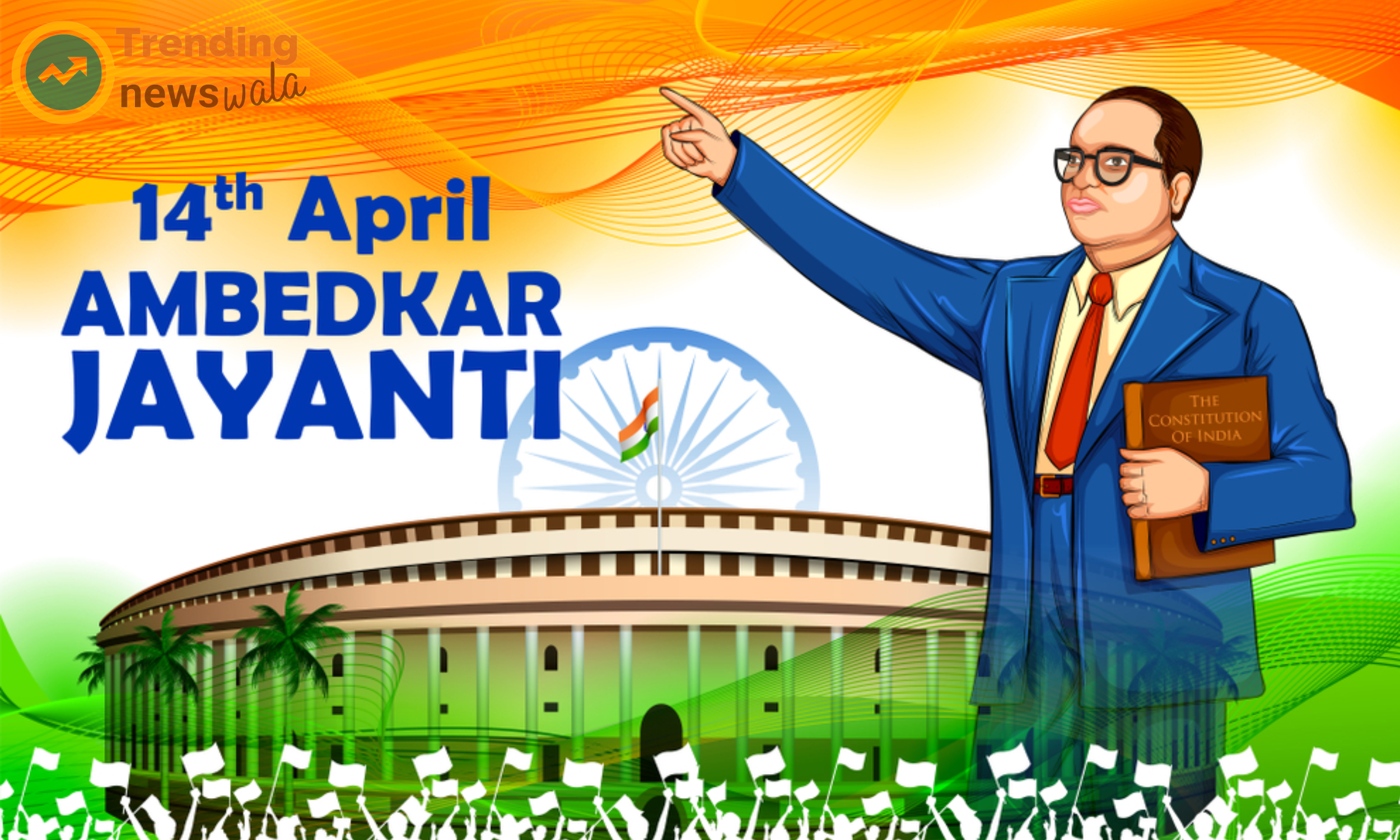
Social justice and equality Dr. Babasaheb Ambedkar-2024
Social justice and equality are foundational principles that advocate for fairness, impartiality, and the equitable distribution of resources and opportunities in society. Dr. B.R. Ambedkar, a prominent social reformer and the chief architect of the Indian Constitution, championed these ideals, particularly in the context of addressing historical and systemic injustices. Here are more details on social justice and equality:
Defining Social Justice: Social justice is a concept that emphasizes the fair and just distribution of wealth, opportunities, and privileges within a society. It aims to address systemic inequalities and eradicate discrimination based on factors such as caste, race, gender, and socio-economic status.
Dr. Ambedkar's Perspective: Dr. Ambedkar, being a staunch advocate for social justice, focused on dismantling the caste system and eradicating untouchability in India. His vision aimed at creating a society where every individual, regardless of their background, could enjoy equal rights, dignity, and opportunities.
Caste-Based Discrimination: In the Indian context, social justice often involves combating caste-based discrimination. The caste system, with its historical roots, had marginalized certain sections of society for centuries. Dr. Ambedkar's efforts, both as a social reformer and a constitutional architect, were directed towards uplifting the oppressed and ensuring their social and political inclusion.
Reservation Policies: Dr. Ambedkar played a pivotal role in the incorporation of reservation policies in the Indian Constitution. These policies, also known as affirmative action, aim to provide representation and opportunities to historically marginalized communities, including Scheduled Castes (SCs), Scheduled Tribes (STs), and Other Backward Classes (OBCs).
Equal Access to Education: Social justice requires equal access to education for all, irrespective of socio-economic background or caste. Dr. Ambedkar emphasized the transformative power of education in breaking the cycle of oppression. Today, initiatives continue to address disparities in educational opportunities to promote equality.
Employment Opportunities: Equality in employment is a key aspect of social justice. Dr. Ambedkar's vision included measures to ensure that individuals from marginalized communities have fair access to job opportunities. Reservation in government jobs and public institutions is a mechanism aimed at achieving this goal.
Women's Rights: Social justice extends to gender equality, and Dr. Ambedkar was a proponent of women's rights. In addition to his efforts to uplift marginalized castes, he advocated for the rights and dignity of women, recognizing the intersectionality of gender and caste discrimination.
Land Reforms: Dr. Ambedkar's commitment to social justice encompassed land reforms to address agrarian inequalities. His vision aimed at ensuring equitable land distribution, breaking the cycle of landlessness among marginalized communities, and promoting economic empowerment.
Legal Protections: Legal provisions and safeguards are essential components of social justice. Dr. Ambedkar's efforts led to the inclusion of anti-discrimination and anti-untouchability laws in the Constitution, providing legal recourse for individuals facing social injustice.
Community Empowerment: Social justice involves empowering communities to participate actively in social, economic, and political spheres. Dr. Ambedkar's work aimed at fostering a sense of empowerment and self-determination among marginalized communities, enabling them to overcome historical disadvantages.
Ongoing Struggles: Despite progress, the struggle for social justice continues. Movements advocating for the rights of marginalized communities, including Dalits, Adivasis, and other oppressed groups, persist in their efforts to secure equal opportunities, representation, and dignity.
In summary, social justice and equality, as envisioned by Dr. B.R. Ambedkar, are comprehensive principles aimed at creating a society where every individual, irrespective of their background, can lead a life of dignity and opportunity. These principles continue to shape the socio-political landscape, inspiring ongoing efforts to build a more just and equitable world.
Dr. Ambedkar dedicated his life to the pursuit of social justice and the eradication of caste-based discrimination. In contemporary India, the fight against caste oppression persists, and the principles championed by Dr. Ambedkar serve as a beacon for those striving to create an egalitarian society. The struggle for equality remains central to the discourse on human rights and dignity.

Empowerment through Education, Dr. Babasaheb Ambedkar-2024
Empowerment through education is a transformative concept that emphasizes the role of education in providing individuals with the knowledge, skills, and confidence needed to overcome socio-economic challenges and participate fully in society. Dr. B.R. Ambedkar, a key architect of India's Constitution, recognized the empowering potential of education, particularly in the context of addressing historical injustices and social inequalities. Here are more details on empowerment through education:
Breaking the Chains of Oppression: Education is seen as a powerful tool to break the chains of oppression and discrimination. For marginalized communities, including Scheduled Castes (SCs) and Scheduled Tribes (STs), education becomes a means to challenge the historical and systemic barriers that have limited their access to opportunities.
Eradicating Ignorance: Dr. Ambedkar believed that ignorance was a significant factor contributing to social inequalities. Education, in his view, was crucial in eradicating ignorance and fostering awareness about rights, dignity, and the possibilities for social mobility.
Promoting Equality: Education serves as an equalizer, providing individuals with the knowledge and skills necessary to compete on a level playing field. Dr. Ambedkar's vision included educational reforms that aimed at ensuring equitable access to quality education for all, irrespective of caste or socio-economic background.
Creating Empowered Individuals: Empowerment through education involves equipping individuals with the tools to make informed decisions, assert their rights, and actively participate in civic life. It transforms individuals into empowered citizens who can contribute meaningfully to their communities and society at large.
Economic Empowerment: Education is a pathway to economic empowerment. Dr. Ambedkar emphasized the importance of education in breaking the cycle of poverty and enabling individuals to access better economic opportunities. Through education, marginalized communities can enhance their skills and enter diverse professions.
Fostering Critical Thinking: A key aspect of empowerment through education is the cultivation of critical thinking skills. Education empowers individuals to question societal norms, challenge injustices, and contribute to the discourse on social issues. This critical engagement is essential for driving positive social change.
Overcoming Social Stigma: Education helps in overcoming social stigma associated with caste and other forms of discrimination. As individuals gain education, they are better positioned to challenge stereotypes and prejudices, fostering a more inclusive and accepting society.
Leadership Development: Dr. Ambedkar envisioned education as a means to nurture leadership qualities among marginalized communities. Empowered by education, individuals are more likely to take on leadership roles, advocate for their communities, and contribute to the upliftment of society as a whole.
Promoting Social Inclusion: Education is a catalyst for social inclusion. By ensuring that historically marginalized groups have access to quality education, societies can break down barriers and create environments that celebrate diversity and inclusivity.
Lifelong Learning: Dr. Ambedkar's vision of education extends beyond formal schooling to encompass lifelong learning. Continuous learning equips individuals with the adaptability and resilience needed in a rapidly changing world, ensuring ongoing personal and community development.
Educational Policies and Reforms: Empowerment through education requires supportive policies and educational reforms. Dr. Ambedkar's advocacy included efforts to eliminate discriminatory practices in education and establish policies that promoted inclusivity and equal opportunities.
In summary, empowerment through education, as envisioned by Dr. B.R. Ambedkar, is a multifaceted approach that goes beyond academic learning. It involves fostering a sense of agency, challenging social norms, promoting economic independence, and creating a foundation for lifelong growth and development. Education becomes a powerful catalyst for individual and societal transformation, paving the way for a more just and equitable future.
Dr. Ambedkar recognized the transformative power of education in breaking the shackles of social inequality. His advocacy for education as a means of empowerment is particularly relevant in 2024. Efforts to enhance educational opportunities for marginalized communities continue to be crucial for fostering a more inclusive and progressive society.
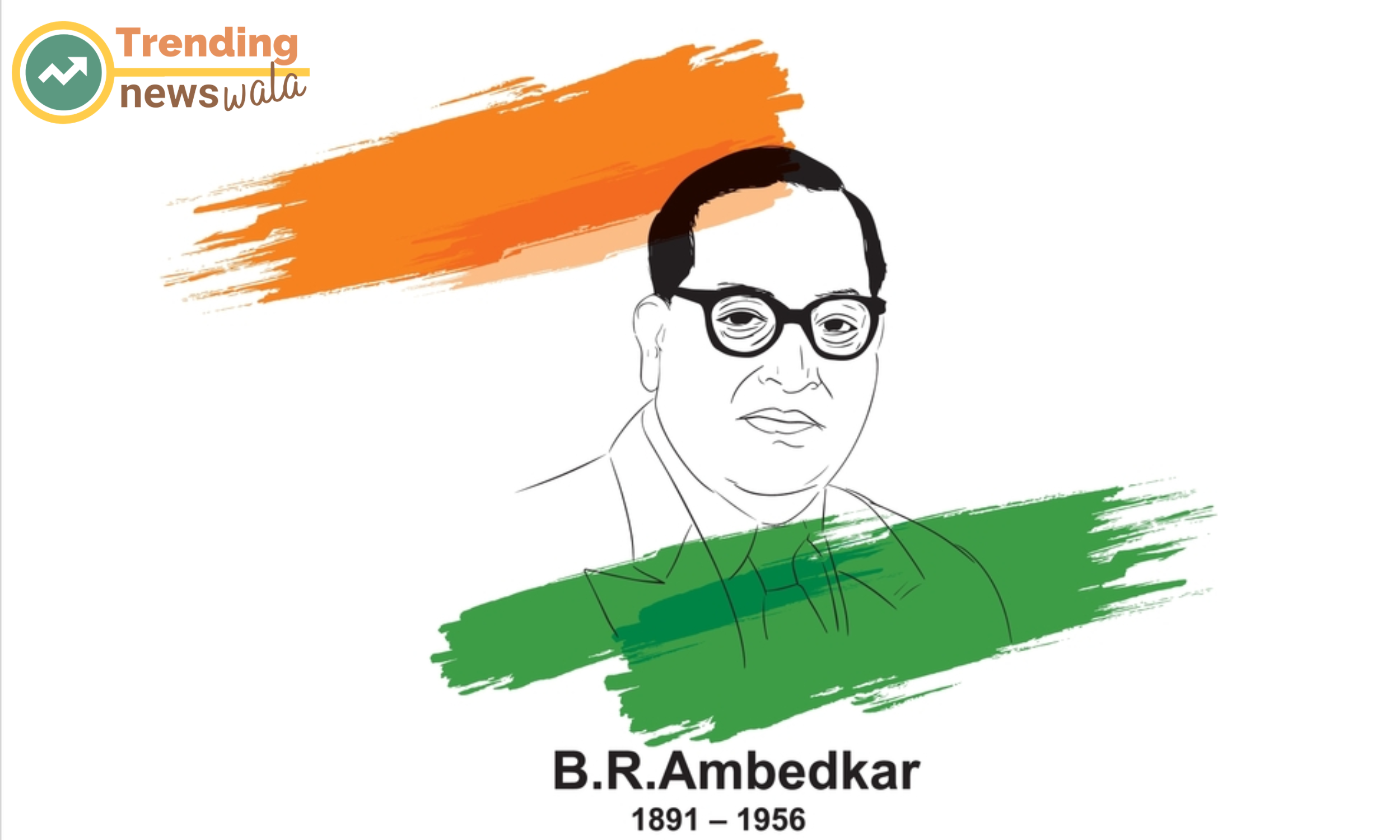
Championing Women's Rights , Dr. Babasaheb Ambedkar-2024
Championing women's rights was a significant aspect of Dr. B.R. Ambedkar's vision, reflecting his commitment to addressing gender inequalities and ensuring the empowerment of women. Here are more details on how Dr. Ambedkar championed women's rights:
Intersectionality of Discrimination: Dr. Ambedkar recognized the intersectionality of discrimination, understanding that women from marginalized castes faced multiple layers of oppression. His advocacy for women's rights encompassed both gender and caste, aiming to address the unique challenges faced by Dalit women.
Social Reforms: Dr. Ambedkar's efforts in championing women's rights included social reforms within marginalized communities. He sought to challenge patriarchal norms and practices that perpetuated gender-based discrimination, emphasizing the need for social change to uplift women.
Educational Empowerment: Education was a central theme in Dr. Ambedkar's vision for women's empowerment. He believed that education was a powerful tool to liberate women from societal constraints and enable them to participate actively in social and political life.
Legal Protections: Dr. Ambedkar's work in framing the Indian Constitution included provisions for women's rights. The Constitution enshrines principles of equality and non-discrimination, forming the basis for legal protections against gender-based injustices.
Representation in Public Life: Dr. Ambedkar advocated for the representation of women in public life and decision-making bodies. He believed that political participation was crucial for challenging discriminatory policies and ensuring that women's voices were heard in matters that affected their lives.
Economic Independence: Economic empowerment was a key aspect of Dr. Ambedkar's vision for women. He recognized that economic independence played a vital role in liberating women from dependence on traditional structures, contributing to their overall empowerment.
Campaign Against Child Marriage: Dr. Ambedkar actively campaigned against child marriage, recognizing it as a social evil that perpetuated gender inequality. His efforts aimed at raising awareness about the detrimental effects of child marriage on girls' education, health, and overall well-being.
Anti-Dowry Stance: Dr. Ambedkar was a vocal critic of the dowry system, viewing it as a social practice that oppressed women. His stance against dowry reflected a commitment to challenging cultural norms that perpetuated economic burdens on women and their families.
Legal Reforms for Women: Dr. Ambedkar's role in legal reforms extended to issues affecting women. His efforts contributed to the inclusion of legal provisions protecting women's rights, including those related to marriage, divorce, and inheritance.
Encouraging Women's Participation in Social Movements: Dr. Ambedkar encouraged women to actively participate in social and political movements. He believed that their involvement was essential for driving social change and challenging ingrained prejudices within society.
Legacy for Feminist Movements: Dr. Ambedkar's contributions to women's rights have left a lasting legacy, influencing subsequent feminist movements in India. His advocacy for gender equality continues to inspire activists working towards dismantling patriarchal structures and ensuring equal opportunities for women.
In summary, Dr. B.R. Ambedkar's championing of women's rights was a comprehensive effort that addressed the complex intersections of gender and caste-based discrimination. His vision emphasized the need for legal protections, social reforms, educational empowerment, and economic independence to ensure the holistic empowerment of women in India.
Dr. Ambedkar was a staunch advocate for women's rights, understanding the intersectionality of gender and caste discrimination. In the present day, his commitment to gender equality resonates as a call to address systemic challenges faced by women, particularly those from marginalized communities. The quest for gender justice aligns with Dr. Ambedkar's broader vision of a just society.
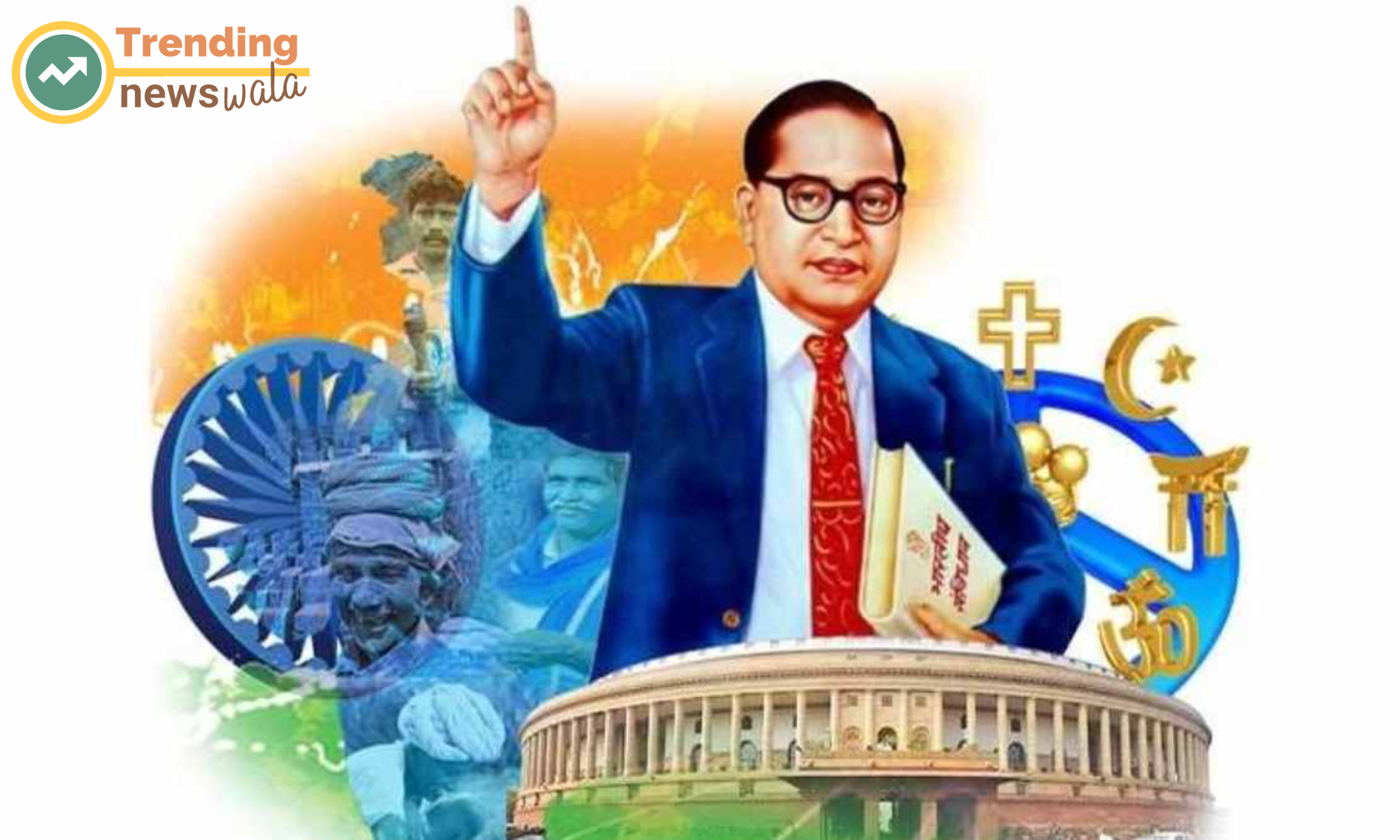
Political Representation , Dr. Babasaheb Ambedkar-2024
Political representation, a crucial aspect of democratic governance, involves the participation and inclusion of diverse groups within the political decision-making process. Dr. B.R. Ambedkar, as a key architect of the Indian Constitution, recognized the significance of political representation, particularly for marginalized communities. Here are more details on political representation in the context of Dr. Ambedkar's vision:
Inclusive Democracy: Dr. Ambedkar's vision of political representation was rooted in the principles of inclusive democracy. He believed that every section of society, including those historically marginalized, should have a voice in the political processes to ensure a truly representative and participatory democracy.
Reserved Seats in Legislature: One of Dr. Ambedkar's significant contributions was the inclusion of reserved seats for Scheduled Castes (SCs) and Scheduled Tribes (STs) in the legislative bodies. This affirmative action aimed to address historical injustices and provide a platform for marginalized communities to actively participate in lawmaking.
Ensuring Proportional Representation: Dr. Ambedkar advocated for proportional representation, ensuring that the composition of legislative bodies reflects the diversity of the population. This includes representation not only based on caste but also considering gender, religious minorities, and other marginalized groups.
Empowering Women in Politics: Dr. Ambedkar recognized the importance of women's political representation. While he championed the cause of political empowerment for women, the reservation of seats for women in local bodies was a later development. Today, efforts continue to enhance women's representation at all levels of government.
Affirmative Action for OBCs (Other Backward Classes): Beyond SCs and STs, Dr. Ambedkar's vision also paved the way for affirmative action for Other Backward Classes (OBCs). Reserving seats for OBCs in legislatures aimed at addressing the socio-economic backwardness of these communities and providing them a political platform.
Decentralized Governance: Dr. Ambedkar emphasized decentralized governance as a means of grassroots political representation. He advocated for strong local self-government institutions, ensuring that political decisions are made at the closest possible level to the people, facilitating more direct participation.
Importance of Political Education: Dr. Ambedkar stressed the importance of political education for marginalized communities. He believed that political awareness and education were essential for enabling individuals to actively engage in the democratic process, ensuring effective representation.
Eradicating Political Untouchability: Dr. Ambedkar aimed at eradicating what he termed "political untouchability" by ensuring equal political rights for all citizens. This included creating an environment where individuals from marginalized communities could participate in politics without facing discrimination or bias.
Advocacy for Minority Rights: Dr. Ambedkar's vision extended to the protection of minority rights through political representation. He emphasized the need for safeguards to ensure that minority communities have a say in matters that affect them, fostering a spirit of inclusivity in a diverse nation.
Encouraging Participation in Political Movements: Dr. Ambedkar encouraged marginalized communities to actively participate in political movements and engage with the democratic system. He believed that political mobilization was a powerful tool for bringing about social change and challenging systemic inequalities.
Legacy for Social Justice Movements: Dr. Ambedkar's contributions to political representation have left a lasting legacy, serving as an inspiration for social justice movements. His vision continues to guide efforts aimed at enhancing representation for marginalized communities and ensuring their voices are heard in the corridors of power.
In summary, political representation in the context of Dr. B.R. Ambedkar's vision goes beyond mere participation; it involves affirmative action, decentralization, and the eradication of political untouchability. His contributions have significantly shaped India's political landscape, fostering a commitment to inclusive democracy and ensuring that marginalized communities have a rightful place in the political decision-making process
Dr. Ambedkar emphasized the importance of political representation for marginalized communities. In 2024, the need for diverse and inclusive political participation remains a pertinent issue. Efforts to ensure adequate representation in legislative bodies and decision-making positions reflect the enduring relevance of Dr. Ambedkar's insights into the democratic process.
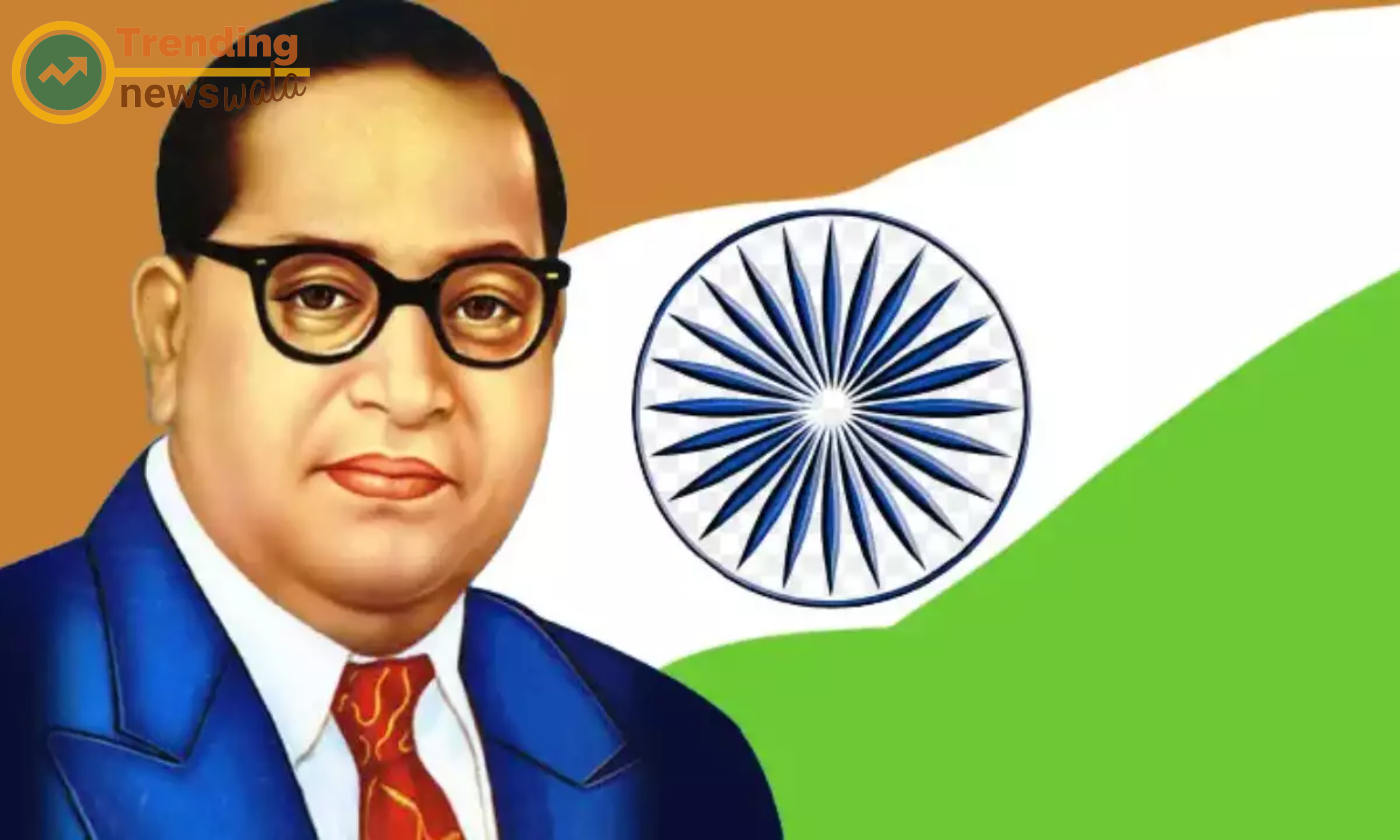
Economic Empowerment, Dr. Babasaheb Ambedkar-2024
Economic empowerment refers to the process of providing individuals and communities with the resources, opportunities, and capabilities needed to achieve economic self-sufficiency, improve their standard of living, and participate meaningfully in economic activities. Dr. B.R. Ambedkar, a key architect of the Indian Constitution, recognized the importance of economic empowerment, especially for historically marginalized communities. Here are more details on economic empowerment in the context of Dr. Ambedkar's vision:
Land Reforms: Dr. Ambedkar advocated for land reforms as a crucial component of economic empowerment. He believed in equitable distribution of land to address agrarian inequalities and provide marginalized communities with a source of livelihood and economic independence.
Access to Economic Resources: Economic empowerment involves ensuring access to economic resources such as credit, capital, and markets. Dr. Ambedkar's vision included measures to facilitate the availability of financial resources for individuals and communities, breaking the cycle of economic dependency.
Promotion of Entrepreneurship: Dr. Ambedkar encouraged entrepreneurship as a means of economic empowerment. He recognized the importance of self-employment and business ownership in creating economic opportunities and fostering self-reliance among marginalized communities.
Employment Opportunities: Ensuring access to dignified and gainful employment was a key focus of Dr. Ambedkar's economic vision. His efforts included advocating for reservation in government jobs and public institutions for Scheduled Castes (SCs), Scheduled Tribes (STs), and Other Backward Classes (OBCs).
Education for Economic Mobility: Dr. Ambedkar saw education as a powerful tool for economic mobility. By promoting education, especially among marginalized communities, he aimed to equip individuals with the skills and knowledge needed to access better employment opportunities and break the cycle of poverty.
Financial Inclusion: Dr. Ambedkar's economic vision included measures for financial inclusion. Access to banking services, credit facilities, and other financial instruments were considered essential for empowering individuals to invest, save, and build economic assets.
Cooperative Movements: Cooperative movements were part of Dr. Ambedkar's strategy for economic empowerment. He saw cooperatives as a way for communities to pool resources, engage in collective economic activities, and achieve economic self-sufficiency.
Skill Development: Dr. Ambedkar recognized the importance of skill development in enhancing employability and economic productivity. His vision included initiatives to provide training and skill-building opportunities for individuals, aligning their skills with market demands.
Eradicating Economic Exploitation: Dr. Ambedkar aimed at eradicating economic exploitation, particularly the exploitation faced by marginalized communities in various economic spheres. His economic vision sought to establish fair economic practices and eliminate discriminatory practices that hindered economic progress.
Social Security Measures: Dr. Ambedkar's economic vision also included measures for social security. Ensuring access to healthcare, housing, and other social welfare initiatives were considered essential components of economic empowerment.
Promotion of Industries: Dr. Ambedkar emphasized the promotion of industries, particularly those that could provide employment opportunities to marginalized communities. Industrial development was seen as a means of diversifying the economic base and creating sustainable livelihoods.
Legacy for Economic Policies: Dr. Ambedkar's contributions to economic empowerment have left a lasting legacy. His advocacy for inclusive economic policies, affirmative action, and social welfare measures has influenced subsequent policies aimed at reducing economic disparities and fostering inclusive economic growth.
In summary, economic empowerment in the context of Dr. B.R. Ambedkar's vision involves a multifaceted approach that includes land reforms, access to resources, entrepreneurship, employment opportunities, education, and social security measures. His efforts have significantly shaped the discourse on economic inclusion and continue to inspire initiatives aimed at creating a more equitable and economically empowered society.
The economic empowerment of marginalized communities was a key aspect of Dr. Ambedkar's vision. In the contemporary context, initiatives promoting economic inclusivity and addressing disparities are essential for realizing the economic rights that Dr. Ambedkar envisioned. This includes access to employment opportunities, entrepreneurship, and economic self-sufficiency.
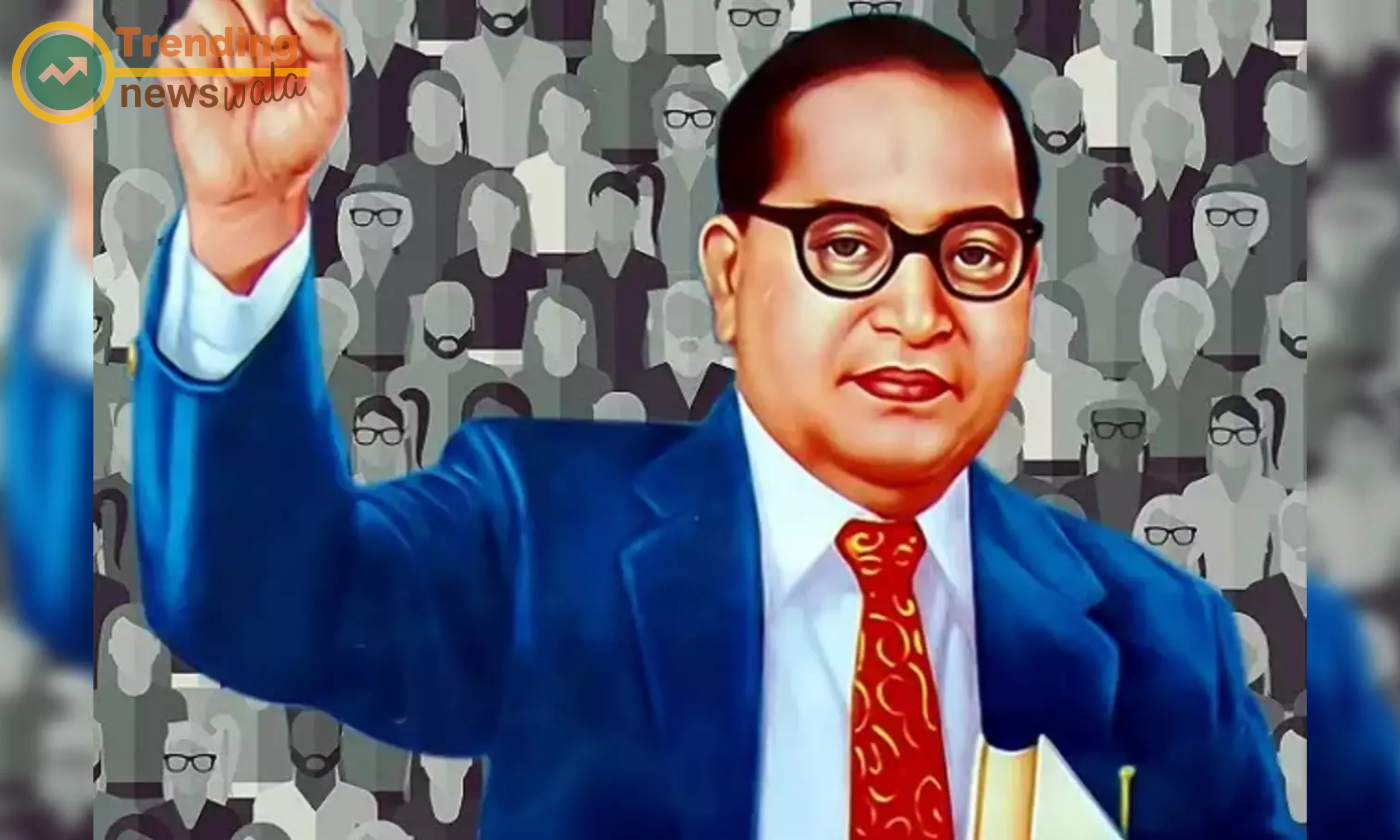
Global Reverberations, Dr. Babasaheb Ambedkar-2024
Global reverberations refer to the widespread and lasting impact that an individual, their ideas, or their actions have on a global scale. Dr. B.R. Ambedkar, a key figure in India's history, has had global reverberations, influencing movements for social justice and human rights across borders. Here are more details on the global reverberations of Dr. Ambedkar's legacy:
Inspiration for International Social Movements: Dr. Ambedkar's advocacy for the rights of marginalized communities, social justice, and equality has inspired social movements beyond India. Activists and thinkers worldwide have drawn inspiration from his struggles and principles in their fights against discrimination and oppression.
Influence on Anti-Caste Movements: The principles and ideas put forth by Dr. Ambedkar have been embraced by anti-caste movements globally. His critique of the caste system and his efforts to eradicate untouchability resonate with movements striving to dismantle hierarchical structures based on birth and social status.
Recognition in Academic Discourses: Dr. Ambedkar's writings and teachings have found a place in academic discourses worldwide. Scholars and researchers engage with his ideas on caste, social justice, and democracy, contributing to global discussions on human rights and equality.
International Conferences and Seminars: Conferences and seminars dedicated to the study of Dr. Ambedkar's life and work have been organized globally. These gatherings provide platforms for scholars, activists, and intellectuals to exchange ideas, discuss his contributions, and explore ways to apply his principles in different contexts.
Influence on Dalit Diaspora: The Dalit diaspora, scattered across various countries, has been deeply influenced by Dr. Ambedkar's teachings. His ideas continue to shape the identity and activism of Dalits living outside India, fostering a sense of solidarity and resilience against discrimination.
Impact on Legal and Human Rights Discourses: Dr. Ambedkar's role as the principal architect of the Indian Constitution has had a profound impact on legal and human rights discourses globally. His emphasis on fundamental rights, social justice, and constitutional governance has influenced the framing of constitutions and legal frameworks in various countries.
Intersectionality in Social Movements: The intersectionality embedded in Dr. Ambedkar's approach—addressing the interconnectedness of caste, class, and gender discrimination—has resonated with intersectional feminist movements globally. His inclusive vision serves as a model for addressing multifaceted forms of oppression.
Recognition by International Institutions: Dr. Ambedkar's contributions to social justice have gained recognition from international institutions. His role in shaping India's constitutional framework and his advocacy for human rights have been acknowledged globally, contributing to a broader understanding of inclusive governance.
Philosophical Contributions to Global Thought: Dr. Ambedkar's philosophical insights on democracy, liberty, and fraternity have transcended national boundaries. Scholars worldwide engage with his writings, integrating his perspectives into broader philosophical discussions on governance, justice, and human rights.
Symbol of Struggle Against Injustice: Dr. Ambedkar's life and struggles have become a symbol of resilience and the fight against injustice on a global scale. His legacy is invoked in movements advocating for the rights of marginalized communities, serving as a beacon for those striving for a more just and equitable world.
Solidarity Movements: Dr. Ambedkar's ideas have fueled solidarity movements, where individuals and groups globally express solidarity with the struggles faced by marginalized communities in India. This international solidarity contributes to a collective effort against discrimination and oppression.
In summary, the global reverberations of Dr. B.R. Ambedkar's legacy extend beyond India, impacting social movements, academic discourse, legal frameworks, and the struggles for human rights and equality worldwide. His principles continue to resonate, inspiring individuals and communities to confront injustice and work towards a more inclusive and just global society.
Dr. Ambedkar's ideas have transcended national boundaries, influencing movements for social justice and human rights globally. In 2024, his legacy continues to inspire activists and thinkers worldwide who are engaged in the struggle against discrimination, inequality, and injustice.

Faq For Dr. Babasaheb Ambedkar-2024
Dr. B.R. Ambedkar, popularly known as Babasaheb, was a prominent Indian jurist, social reformer, and the chief architect of the Indian Constitution. He played a pivotal role in championing the rights of marginalized communities and advocating for social justice.
In 2024, Dr. Ambedkar's legacy continues to be a guiding force in the pursuit of social justice, equality, and human rights. His ideas have global reverberations, influencing movements and discussions on inclusivity and empowerment.
Dr. Ambedkar's key contributions include drafting the Indian Constitution, advocating for Dalit rights, fighting against caste-based discrimination, and championing the principles of liberty, equality, and fraternity.
In 2024, Dr. Ambedkar is remembered as an icon of resilience, intellect, and social reform. His contributions to law, education, and the upliftment of marginalized communities are celebrated, and his teachings continue to inspire movements for justice.
Dr. Ambedkar's ideas have had global reverberations, influencing social movements for justice and equality beyond India. His critiques of caste discrimination and his emphasis on human rights have inspired activists worldwide.
Dr. Ambedkar's vision for social justice is significant as it encompasses the eradication of caste-based discrimination, promotion of equality, and empowerment of marginalized communities. His principles laid the foundation for inclusive governance in India.
Dr. Ambedkar's emphasis on fundamental rights, individual freedoms, and social equality continues to influence contemporary discussions on human rights. His vision remains relevant in addressing issues of discrimination and injustice globally.
In 2024, various initiatives, including educational programs, social awareness campaigns, and policy implementations, are undertaken to uphold Dr. Ambedkar's ideals. Efforts are made to promote inclusivity, address discrimination, and ensure equal opportunities.
Dr. Ambedkar's vision has profoundly shaped constitutional governance in India. His contributions to drafting the Constitution lay the groundwork for a democratic and inclusive nation, emphasizing the principles of justice, liberty, and fraternity.
Dr. Ambedkar played a pivotal role in the empowerment of marginalized communities by advocating for reservations, educational reforms, and social equality. His efforts aimed at breaking the shackles of caste-based oppression and promoting economic independence.
Writer and content creator
Log in to share your thoughts and engage with other readers.